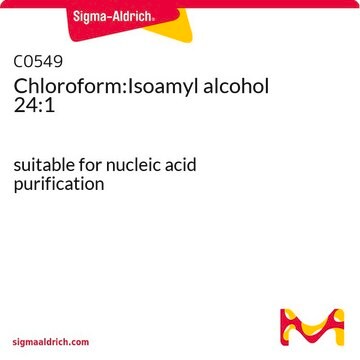T6137
Trioxsalen
≥98% (HPLC), powder, photochemical DNA crosslinker
Synonym(s):
2,5,9-Trimethylfuro[3,2-g]benzopyran-7-one, 4,5′,8-Trimethylpsoralen, TMP, Trisoralen
About This Item
Recommended Products
product name
Trioxsalen, ≥98% (HPLC), powder
Quality Level
Assay
≥98% (HPLC)
form
powder
color
white
mp
229-231 °C (lit.)
solubility
chloroform: soluble 50 mg/mL, clear, colorless to faintly yellow
fluorescence
λex 269 nm; λem 445 nm in methanol
λex 321 nm; λem 445 nm (bound to DNA in Tris, pH 8.1)
originator
Valeant
storage temp.
−20°C
Looking for similar products? Visit Product Comparison Guide
1 of 4
This Item | U2625 | AG974 | 286842 |
|---|---|---|---|
| mp 30-34 °C (lit.) | mp >300 °C (lit.) | mp - | mp 60-61 °C (lit.) |
| bp 330 °C (lit.) | bp - | bp - | bp - |
| form crystalline, waxy solid, liquid | form crystalline | form powder | form - |
| density 0.786 g/mL at 25 °C (lit.) | density - | density - | density - |
| vapor density 9.27 (vs air) | vapor density - | vapor density - | vapor density - |
Application
Biochem/physiol Actions
Features and Benefits
Preparation Note
Signal Word
Danger
Hazard Statements
Precautionary Statements
Hazard Classifications
Acute Tox. 4 Dermal - Acute Tox. 4 Inhalation - Eye Dam. 1 - Muta. 2 - Skin Corr. 1B
Storage Class Code
8A - Combustible corrosive hazardous materials
WGK
WGK 2
Flash Point(F)
Not applicable
Flash Point(C)
Not applicable
Personal Protective Equipment
Certificates of Analysis (COA)
Search for Certificates of Analysis (COA) by entering the products Lot/Batch Number. Lot and Batch Numbers can be found on a product’s label following the words ‘Lot’ or ‘Batch’.
Already Own This Product?
Find documentation for the products that you have recently purchased in the Document Library.
Customers Also Viewed
Articles
DNA damage and repair mechanism is vital for maintaining DNA integrity. Damage to cellular DNA is involved in mutagenesis, the development of cancer among others.
Cell cycle phases (G1, S, G2, M) regulate cell growth, DNA replication, and division in proliferating cells.
Cell cycle phases (G1, S, G2, M) regulate cell growth, DNA replication, and division in proliferating cells.
Cell cycle phases (G1, S, G2, M) regulate cell growth, DNA replication, and division in proliferating cells.
Our team of scientists has experience in all areas of research including Life Science, Material Science, Chemical Synthesis, Chromatography, Analytical and many others.
Contact Technical Service















![2-Amino-9H-pyrido[2-3-b]indole ≥98% (HPLC)](/deepweb/assets/sigmaaldrich/product/structures/351/152/37c98523-590f-4b27-826c-5b3d4b502047/640/37c98523-590f-4b27-826c-5b3d4b502047.png)
